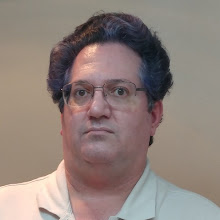- Yes, the LHC will be colliding particles with higher energies than anything humans have been able to manage to date. But the Universe isn't human, and has been colliding particles with energies orders of magnitude higher than the LHC's capable of for billions of years. Several such collisions happen here on Earth each year as high-energy gamma rays impact the atmosphere. Given the length of time and the number of events per year, if those collisions would create a black hole that'd last any length of time we'd've seen evidence of it happening before now.
- Any black hole the LHC might create will have only the mass of the particles involved in the collision. That's only going to be a couple of protons worth. Such low-mass black holes emit a large amount of Hawking radiation relative to their mass. And that emitted radiation comes from their mass. Low-mass black holes simply evaporate very quickly (within fractions of a second) after forming. So even if a black hole does get created, it'll disappear again probably before we even know it existed.
- Even if the black hole sticks around, it won't pull in enough to be a problem. Remember, black holes don't have any greater gravitational pull than anything else of the same mass, their only special property is how steep their gravity well is. The danger radius of such a low-mass black hole is going to be a fraction the size of a subatomic particle. It's going to have to hit another subatomic particle almost dead-center to suck in any additional mass. At this scale "solid' matter's 99.999% empty, so it's going to take that black hole a very long time (as in millions of years) to accumulate enough mass to begin to start pulling in matter on a macroscopic scale.
- Ignoring the above, the black hole will have the same velocity vector and momentum as the particles that created it. That velocity'll be well above the Earth's escape velocity, and tangent to it's surface. Any black hole will simply continue in a straight line away from Earth, never to return.
- And even ignoring the previous points, this is the test phase. They've only turned on one beam to calibrate and align things. With only one beam, there aren't going to be any particles colliding. So even if the LHC could create black holes, it won't be creating them today.
Wednesday, September 10, 2008
Large Hadron Collider
They've fired up the LHC today for the first tests. A lot of people have been making noises about the risk of it creating a black hole that'll swallow Earth. I'm sorry, the world won't be ending today.
Labels:
large hadron collider,
science
Subscribe to:
Post Comments (Atom)




No comments:
Post a Comment